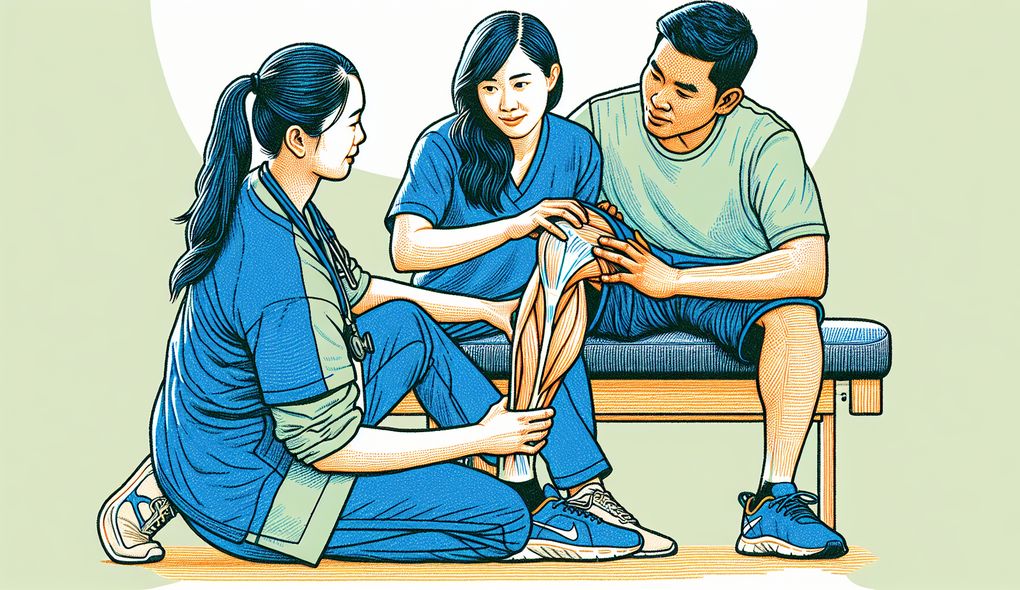Can you provide an example where you used problem-solving and critical thinking skills in a patient care scenario?
SENIOR LEVEL

Sample answer to the question:
In a recent patient care scenario, I encountered a patient recovering from a knee replacement surgery. The patient was experiencing significant pain and was struggling to regain mobility. To address this, I utilized problem-solving and critical thinking skills to develop a tailored treatment plan. I conducted a thorough assessment of the patient's mobility, strength, and coordination, and identified specific areas that needed improvement. I implemented a combination of manual therapy techniques and targeted exercises to address the patient's pain and improve range of motion. Additionally, I collaborated with the patient's surgeon and other healthcare professionals to ensure integrated care. Through continuous evaluation and adjustment of the treatment plan, I was able to help the patient alleviate pain, regain mobility, and successfully navigate their recovery journey.
Here is a more solid answer:
In a recent patient care scenario, I encountered a post-operative knee replacement patient who was experiencing significant pain and limited mobility. To address this, I applied problem-solving and critical thinking skills to assess the patient comprehensively. Through a detailed evaluation of mobility, strength, and coordination, I identified specific areas that required attention. Using evidence-based practices and manual therapy techniques, I developed a personalized treatment plan focused on pain management and optimizing range of motion. Collaboration with the patient's surgeon and other healthcare professionals allowed for an integrated approach to care. Documenting the patient's progress regularly, I adjusted the treatment plan accordingly, ensuring maximum effectiveness. As a result, the patient experienced improved pain control, increased mobility, and a successful recovery from knee replacement surgery.
Why is this a more solid answer?
The solid answer expands on the basic answer by providing more details about the problem-solving and critical thinking strategies used. It includes specific information about the assessment process and the use of evidence-based practices and manual therapy techniques. The answer also emphasizes the collaboration with healthcare providers and the documentation of patient progress. However, it can further improve by discussing patient education and the development of strategies for injury prevention.
An example of a exceptional answer:
During my experience working with a patient recovering from a knee replacement surgery, I encountered a challenging scenario that required problem-solving and critical thinking skills. The patient was dealing with excruciating pain and limited mobility post-surgery, hindering their overall rehabilitation progress. To address this, I took a comprehensive approach. I conducted a thorough patient assessment, examining key factors such as mobility, strength, coordination, and pain threshold. This allowed me to gain a holistic view of the patient's condition and identify the underlying issues contributing to their slow recovery. With this knowledge, I devised a multifaceted treatment plan that incorporated manual therapy techniques, individualized exercise regimens, and pain management strategies. Collaborating closely with the patient's surgeon, I obtained valuable insights and adapted the treatment plan as needed. I regularly documented the patient's progress, making timely adjustments to ensure optimal outcomes. Additionally, I placed great emphasis on patient education, teaching them home exercises and providing strategies for injury prevention. Through this integrated approach, the patient experienced remarkable improvements in pain management, mobility, and overall function, ultimately achieving a successful recovery from knee replacement surgery.
Why is this an exceptional answer?
The exceptional answer provides a detailed and comprehensive response to the question. It includes specific information about the patient assessment process, the use of a multifaceted treatment plan, and the collaboration with the surgeon. The answer also highlights the importance of patient education and injury prevention strategies. Overall, it demonstrates a high level of problem-solving and critical thinking skills, as well as a commitment to patient-centered care. The answer could further improve by discussing leadership and team management abilities, as mentioned in the job description.
How to prepare for this question:
- Review case studies or patient scenarios that involve problem-solving and critical thinking in a patient care context.
- Familiarize yourself with the latest evidence-based practices and manual therapy techniques relevant to the job.
- Practice explaining your problem-solving strategies and critical thinking process in patient care scenarios.
- Reflect on past experiences where you demonstrated problem-solving and critical thinking skills in patient care, and prepare specific examples to share during the interview.
- Consider how you can effectively collaborate with other healthcare providers and integrate care for optimal outcomes.
- Think about how you can incorporate patient education and injury prevention strategies into your treatment plans.
- Highlight your ability to document patient progress and adjust treatment plans based on ongoing evaluation.
- Discuss any leadership or team management experiences you have had that showcase your problem-solving and critical thinking skills in patient care scenarios.
- Stay up-to-date with advancements in physical therapy practices and principles through continued professional development.
- Prepare questions to ask the interviewer about problem-solving and critical thinking in the context of patient care.
What are interviewers evaluating with this question?
- Problem-solving
- Critical thinking
- Patient assessment
- Treatment plan development
- Collaboration with healthcare providers

